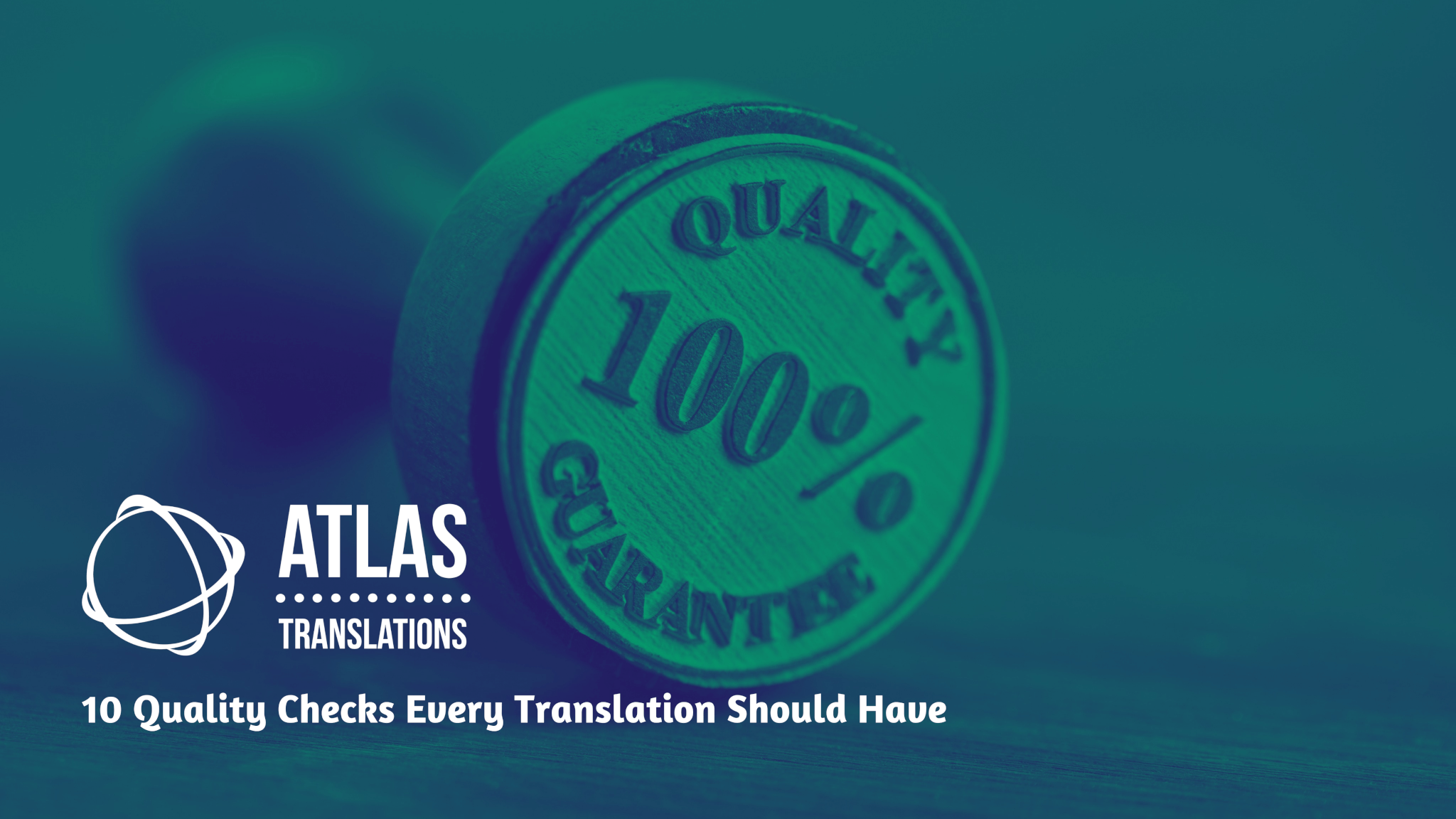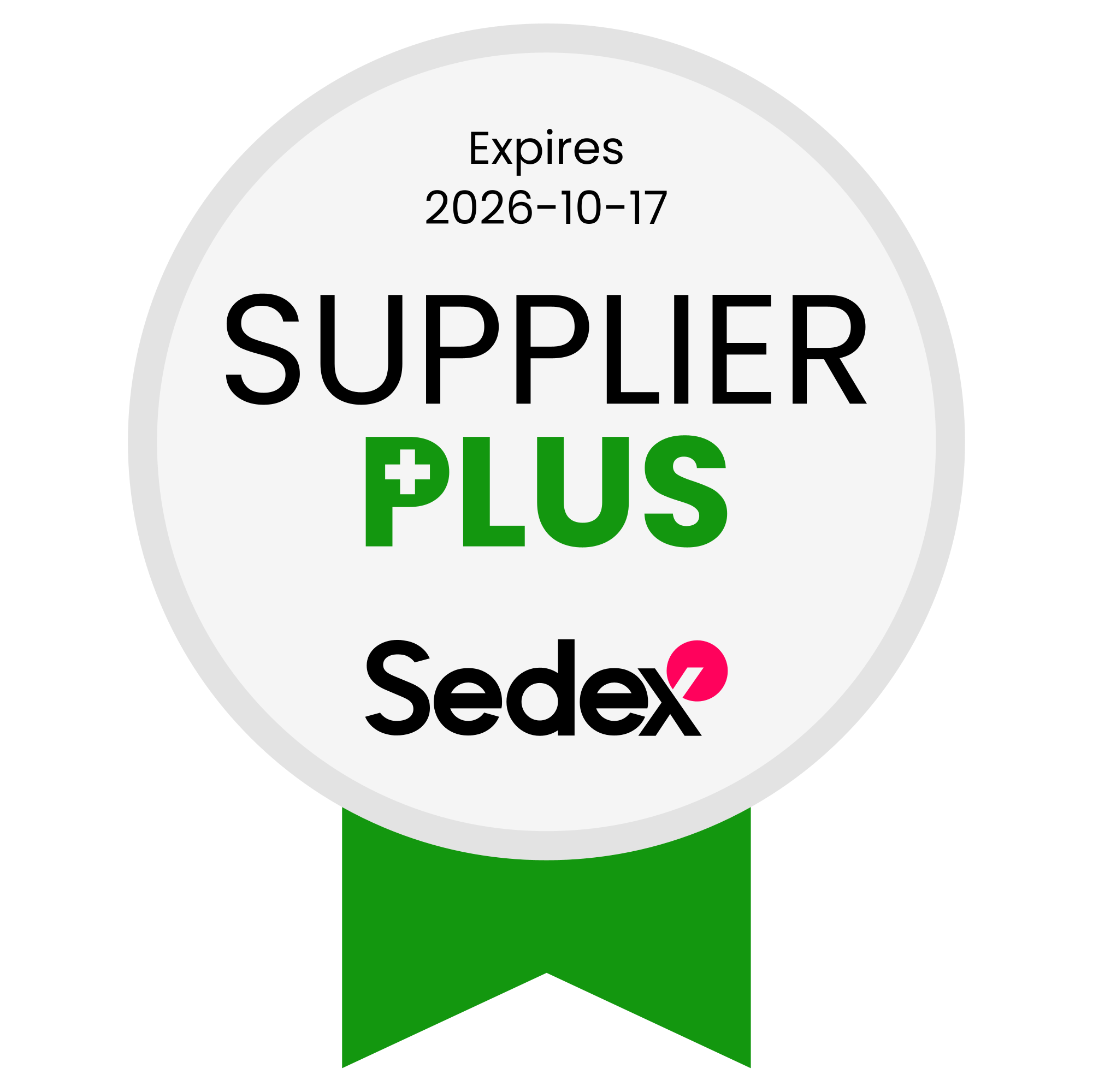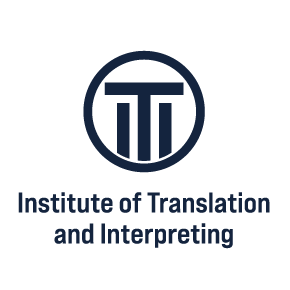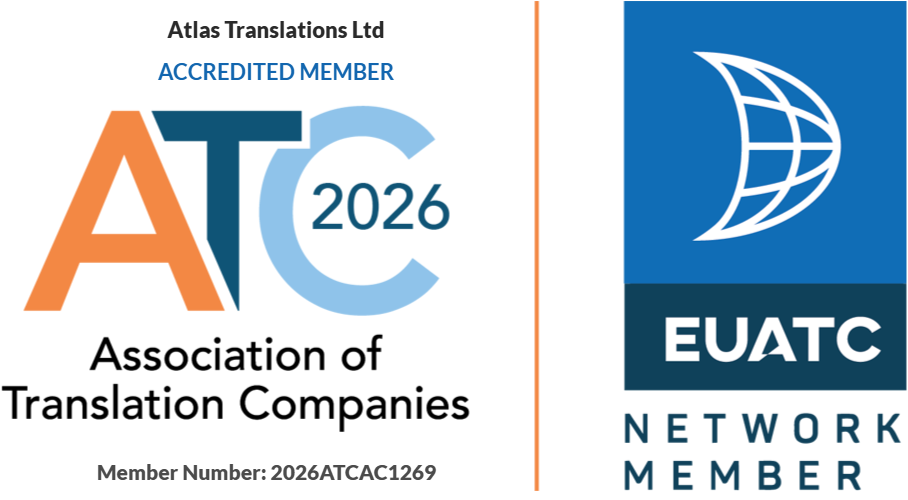Our 10-Step Quality Check For Every Translation

For any translation project, every part of the process is crucial to delivering the finished product, including the final quality check. With over three hundred languages and a wide range of different services, we know it’s important to ensure we keep up our high standards in everything we do.
That’s why we include a 10-step quality check for every translation we carry out. A standard quality check is a fantastic way of making sure that everything is shipshape before a translation is sent back to the client. We are ISO-certified, and have been since these standards began!
- BS EN ISO 9001:2015 (certified since 2003, externally audited annually).
- ISO 17100:2017 for Translation Services (since this standard began, in 2008, externally audited annually).
Here are our ten top tips for a great quality check for any translation.
Sort Out Grammar and Style
Checking the language for correct grammar and style should be the first step of the quality control process. Making sure the tone of the translation fits the brief is essential for delivering exactly the right message.
Av oid Ovious Erors
Clear mistakes like typos, misspelt numbers and double-spaces shouldn’t crop up too often, but you can always benefit from a second pair of eyes to make sure everything is up to scratch.
Keep Font and Size Consistent
Any text should perfectly reflect the formatting of the original document, so the client receives exactly the design they expect. Keeping formatting consistent is important, too – we use tools like ‘format painter’ to ensure everything matches.
Don’t Forget the Note Section
If the task involves translating a PowerPoint document, we make sure to check that all the different parts of the document have been translated properly. This could include the note section underneath the main slides.
Go Through Missing Tabs
Along the same lines as our previous example, it’s essential to check all parts of a file when you’re working in Excel, for example. It can be easy to forget a tab or two, especially if the file was quite large or the last person working on the document has ‘hidden’ a row or column from view.
Keep an Eye Out For Any Names
Making sure all names are spelt correctly is essential, particularly when translating official documents like birth certificates or visas. This is one that is especially important for non-roman alphabets, where names can be spelt in many different ways. We will often ask our clients whether they have a particular spelling they would like us to use in the translation.
Confirm the Contents Page
If we’re working with a longer translation such as a book, report or manual, it’s crucial to check that any ‘Contents’ page has been updated properly to match the translated document. This could involve checking page numbers or headings to avoid anything being mislabelled or misread.
Look Out For Links
Many documents may have hyperlinks included within them, and it’s important to make sure that these have all been carried across properly to the translated version. If some are missing, it’s easy to fix by adding in the correct link yourself.
Turn to the Translator
If anything larger than minor corrections are required, we always get back in touch with the original translator to discuss the amendments.
Handbooks Can Help
These steps are all useful ways to make sure any minor issues are solved. We will often refer back to our in-house quality manual, to ensure we’re delivering a consistent quality to each and every client – be that an individual, or a corporate company.
So, there we have it! Quality checks can be a brilliant way to avoid any awkward mistakes when it comes to translation, ensuring a high standard of work in anything we do. If you’re interested in finding out more about how our translation services could work for you, get in touch with us through our website, by email or on the phone to discover more.















